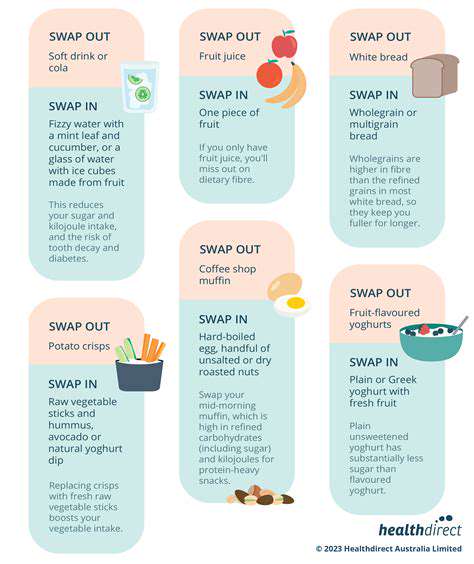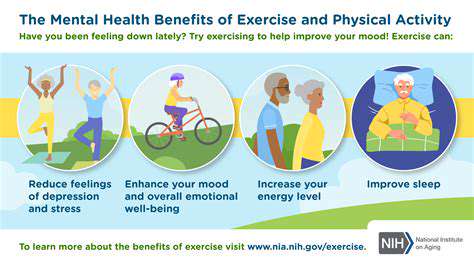Understanding Healthy Fats vs Unhealthy Fats
Monounsaturated and polyunsaturated fats deserve their health halo. Regular consumption of avocado, walnuts, and wild salmon correlates with improved lipid profiles and reduced cardiovascular risk. These nutritional powerhouses do double duty - while improving heart health, they simultaneously support cognitive function through myelin sheath maintenance.
The Mediterranean diet's longevity benefits largely stem from its emphasis on these beneficial fats. Extra virgin olive oil, for instance, contains oleocanthal - a compound with ibuprofen-like anti-inflammatory properties. Such examples demonstrate how quality fats deliver benefits beyond basic nutrition.
Dietary Villains: Fats to Approach With Caution
Industrial trans fats represent perhaps the only universally condemned nutrient. These artificially hydrogenated oils not only elevate LDL cholesterol but simultaneously depress beneficial HDL levels. While naturally occurring trans fats exist in minimal quantities in dairy and meat, the manufactured versions in fried foods and baked goods pose significant health risks.
Saturated fats occupy a middle ground. While essential in moderation, overconsumption - particularly from processed meats - correlates with adverse outcomes. The key lies in source selection: coconut oil's medium-chain triglycerides metabolize differently than the long-chain fats in bacon.
Implementing Fat Wisdom
Practical fat optimization begins with simple swaps: replacing vegetable oils with avocado oil for high-heat cooking, choosing sardines over sausage for protein sources, and using nut butters as creamy alternatives to dairy spreads. Small, sustainable changes yield greater long-term success than drastic overhauls.
Label literacy proves essential - phrases like partially hydrogenated signal trans fats, while cold-pressed indicates minimally processed oils. Remember that fat quality matters as much as quantity: a handful of almonds provides more nutritional value than fat-free cookies loaded with refined carbohydrates.
The Beneficial Fats: Nature's Health Promoters

Demystifying Nutritional Fats
So-called good fats function as biological lubricants, ensuring smooth operation of countless metabolic processes. Their molecular flexibility allows them to participate in reactions that rigid saturated fats cannot, explaining their cardiovascular benefits. The unsaturated family's kinked chemical structure prevents arterial plaque formation while maintaining cellular fluidity.
Within this category, omega-3s demonstrate particular promise. These long-chain fatty acids incorporate directly into brain tissue, with studies suggesting benefits for depression, ADHD, and age-related cognitive decline. The conversion of plant-based ALA to active EPA/DHA remains inefficient in humans, making direct consumption of fatty fish or algae particularly valuable.
Strategic Fat Sources and Their Advantages
Nature packages beneficial fats with complementary nutrients. Walnuts deliver both omega-3s and melatonin, while avocado provides fat-soluble antioxidants alongside its monounsaturated richness. This nutritional synergy explains why whole food sources outperform supplements.
For those avoiding fish, chia seeds offer complete protein alongside omega-3s - a rare plant combination. Meanwhile, extra virgin olive oil's polyphenols may explain the Mediterranean Paradox, where high-fat consumption correlates with longevity. These examples underscore the importance of considering fats within their whole-food context.
Advanced Fat Metabolism: How Different Lipids Affect Physiology

Saturated Fats: Necessary but Nuanced
While often vilified, certain saturated fats play crucial roles in immune function and cellular communication. The key lies in chain length: the medium-chain triglycerides in coconut oil metabolize directly in the liver, while longer-chain versions require more complex processing. This biochemical nuance explains why blanket fat recommendations often fail.
Essential Fatty Acids: The Omega Balance
The omega-6/omega-3 ratio represents a critical but often overlooked metric. While both are essential, modern diets frequently deliver 20:1 ratios where 4:1 might be optimal. This imbalance may contribute to chronic inflammation, making conscious omega-3 consumption particularly important for those eating conventional Western diets.
Grass-fed meats and dairy naturally contain better omega profiles than grain-fed equivalents, while flaxseeds offer plant-based solutions. For seafood avoiders, algae-based supplements provide EPA/DHA without marine contaminants.
Fat Intelligence: Making Informed Choices
Navigating dietary fats requires understanding their contextual nature. The same coconut oil that benefits Alzheimer's patients might not suit someone with familial hypercholesterolemia. Personalized nutrition acknowledges that optimal fat intake varies by genetics, microbiome composition, and metabolic health.
Emerging research suggests our ancestors consumed diverse fat sources seasonally - a practice modern eaters might emulate rather than fixating on single superfood oils. This varied approach ensures broad-spectrum phytonutrient intake while preventing overexposure to any one fat type's potential drawbacks.


![HIIT Workout for Fat Loss [20 Minute Routine]](/static/images/26/2025-05/Exercises28Example293A.jpg)

![Best Books on Mental Health and Well being [Recommended Reads]](/static/images/26/2025-05/CultivatingSelf-CompassionandPositiveSelf-Talk.jpg)






![What is the Mediterranean DASH Diet? [Benefits & How To]](/static/images/26/2025-05/MakingtheMediterranean-DASHDietaSustainableLifestyle.jpg)